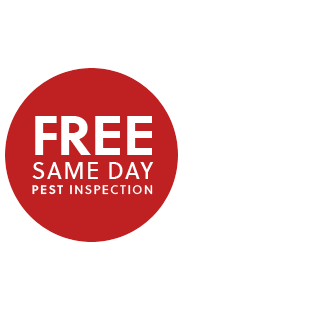Rodent activity levels spike in the spring
Pest activity levels traditionally increase across the board in spring, when temperatures rise and naturally occurring food sources are abundant. That’s certainly holding true for pests typically associated with spring – ants, stinging insects, and termites. However, spring 2021 has also seen a sharp increase in rodent activity.
Darren Van Steenwyk, Clark Pest Control’s Director of Learning and Technical Services, was recently interviewed by CBS13 television in Sacramento on the situation. Van Steenwyk said that Clark has received a significant increase in requests for rodent control, particularly for rats.
Several factors have contributed to the surge in rodent activity, including the fact that more people are working from and eating at home, thus generating additional garbage and food waste that can attract rodents. Conversely, with restaurants having been closed or reopening with reduced capacity, the lack of food waste in dumpsters has forced hungry rodents to search elsewhere for food.
Another factor that contributes to increased rodent sightings is the absence of second-generation anti-coagulant rodent baits, which pest management professionals were using to control rodents. This past September, these baits were outlawed for use around homes by the state of California.
This limits what Clark Pest Control and other pest management professionals can do to protect food and property from disease pathogen-carrying rodents, which invade an estimated 21 million homes in the United States annually.
Why aren’t rodents taking to the new products? Van Steenwyk told CBS13 that the new baits aren’t as palatable as the old ones. Also, clever rodents have figured out that the new product is poisonous, and are communicating that to other members of the colony, which makes them become bait shy.
“Now, it doesn’t matter what we do, because they won’t enter any bait station – whether there’s toxin in it, whether there’s a snap trap, or even just a monitoring block,” Van Steenwyk said.
Rodent-proofing tips
Rodents are an inquisitive and sneaky, and are a very unwelcome presence in any home. They not only spoil food and spread harmful bacteria, but their gnawing can also fray wiring and cause a fire.
Clark, your friendly termite, grounds care, and pest management expert, has long battled this cagey foe in homes across California. We’ve learned that homeowners are an important first line of defense in making sure that rodents fail when they attempt to gain access to a home.
How can you prevent your home from a rodent infestation? The two most important steps are sanitation and exclusion.
If good sanitation practices aren’t followed, the benefits of any rodent control measures will be lost, and the rodents will quickly return.
- Collect garbage, trash, and yard debris frequently, and ensure that all garbage receptacles have tight-fitting covers.
- Maintain your yard by cutting the grass and trimming shrubs that provide rodents with a place to live. Don’t allow tree branches to touch the roof of your home, unless you want to give roof rats easy access to entry points into your attic.
- Reduce clutter. Store boxes and other household goods off the ground to help reduce the suitability of the area for rodents to hide.
- Store food items, including pet food, in hard plastic containers with a tightly sealed lid.
Rodent exclusion
The most effective form of rodent control in a home is physically sealing it to deny access to rats and mice.
Seal openings on the exterior with a silicone caulk and fill gaps and holes inside your home with exclusion material, wire screening, or lightweight sheet metal.
- Seal openings on the exterior with a silicone caulk and fill gaps and holes inside your home with exclusion material, wire screening, or lightweight sheet metal.- Because rodents are excellent climbers, openings above ground level (e.g., along the roof line and gutters) must also be plugged.
Clark Pest Control is committed to safeguarding your home from pests during these challenging times. Our service technicians use such personal protective equipment as gloves, masks, and respirators, they practice social distancing, they call ahead to notify you before a service, and they adhere strictly to all Centers for Disease Control and Prevention guidelines when servicing inside or outside your home.
If you’re experiencing a problem with rodents this spring, call or text (800) WE-NEED-YOU (936-3339) or email us at clarkcares@clarkpest.com.
Until next time, the pest management professionals at Clark Pest Control thank you for helping to keep unwanted pests out of your home.


